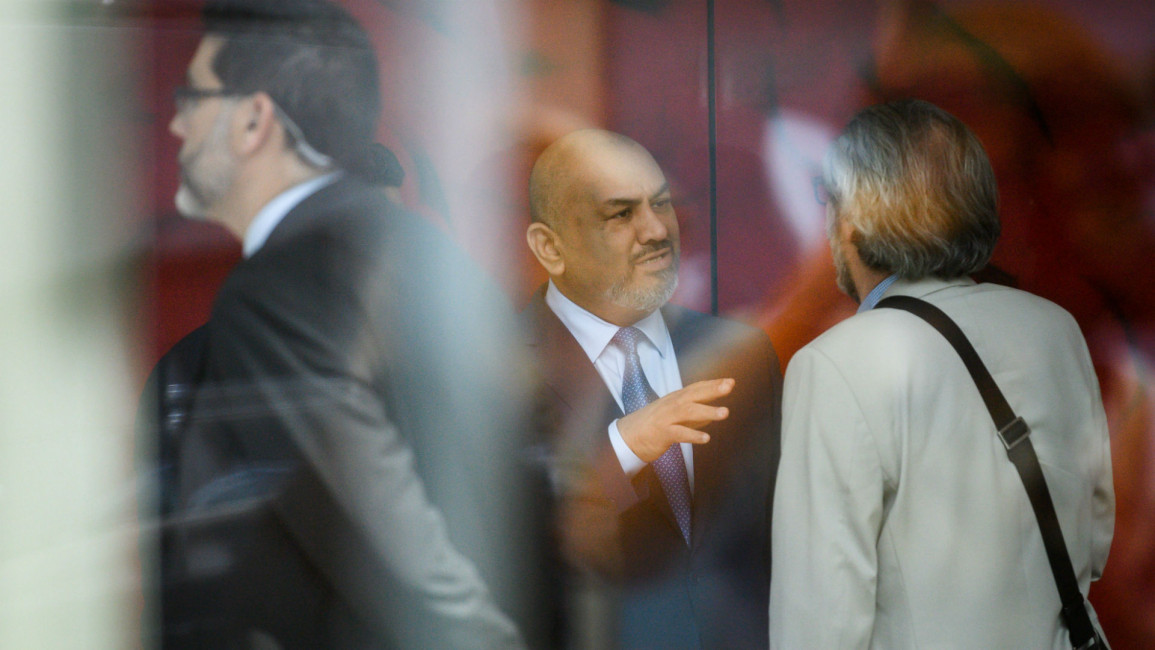Yemen government delegation Sweden-bound for critical peace talks with rebels
Yemen's Saudi-backed government representatives are expected to arrive in Sweden on Wednesday, where they will meet a rebel delegation for high-stakes peace talks aimed at ending four years of devastating war.
A 12-member team from the government headed by Foreign Minister Khaled al-Yamani left Riyadh early on Wednesday, sources told AFP, a day after rebel delegates landed in Stockholm accompanied by the UN peace envoy.
The first Yemen talks since 2016 are widely seen as the best chance yet for peace, as the international community throws its weight behind resolving the devastating conflict that has pushed the Arab world's poorest country to the brink of famine.
The government delegation was carrying the "hopes of the Yemeni people to achieve sustainable peace", the head of exiled President Abedrabbo Mansour Hadi's office, Abdullah al-Alimi, said in a tweet.
The head of the 12-member rebel delegation, Mohammed Abdelsalam, said it would "spare no effort to make a success of the talks to restore peace and end the aggression".
At the same time, he called on rebel fighters to remain "vigilant against any attempt at a military escalation on the ground".
The delegation had delayed its departure until the rebels had arrived in Stockholm after they failed to show up for the last UN bid to convene peace talks in September, complaining they had received insufficient guarantees of safe passage through the blockade enforced by a Saudi-led coalition since March 2015, sources close to the government told AFP.
'Step in right direction'
The rebels flew in on a Kuwaiti plane from Sanaa on Tuesday - accompanied by UN envoy Martin Griffiths, who had promised to travel with them to allay their concerns.
Their arrival followed two major confidence boosts - a prisoner swap deal and the evacuation of 50 wounded insurgents from the rebel-held capital for treatment in neutral Oman.
The announcement of a deal on Tuesday to swap hundreds of detainees was hailed by the International Committee of the Red Cross, which will oversee the exchange after the first round of talks in Sweden, as "one step in the right direction towards the building of mutual trust".
The agreement, struck by the UN envoy in weeks of shuttle diplomacy, came after the wounded rebels were flown out for treatment on Monday meeting a key rebel precondition for joining the talks.
Yemeni government official Hadi Haig said between 1,500 and 2,000 pro-government personnel and between 1,000 and 1,500 rebels would be released.
On the government side, they include former defence minister Mahmoud al-Subaihi, who has been held by rebels ever since they overran the capital in late 2014, and President Hadi's brother Nasser, a general and former senior intelligence official.
Rebel official Abdel Kader al-Murtadha confirmed the deal, adding he hoped it would be "implemented without problem".
The US State Department hailed the peace talks in Sweden as a "necessary and vital first step" and called on all parties to "cease any ongoing hostilities."
The United Arab Emirates, another key backer of the Yemeni government, said the planned talks offered a "critical opportunity" to bring peace to a country in the grip of what the UN has described as the world's worst humanitarian crisis.
Although no date has been announced for the start of the negotiations, Yemeni government sources said they could begin as early as Thursday.
The conflict in Yemen, which erupted in late 2014, has brought the impoverished country to brink of famine, and the UN has described Yemen as the world's worst humanitarian disaster.
More than 10,000 people are said to have been killed since the Saudi-led pro-government coalition intervened in the conflict in early 2015, according to the World Health Organisation, although human rights groups are adamant that the actual toll is far higher.
Follow us on Twitter: @The_NewArab



